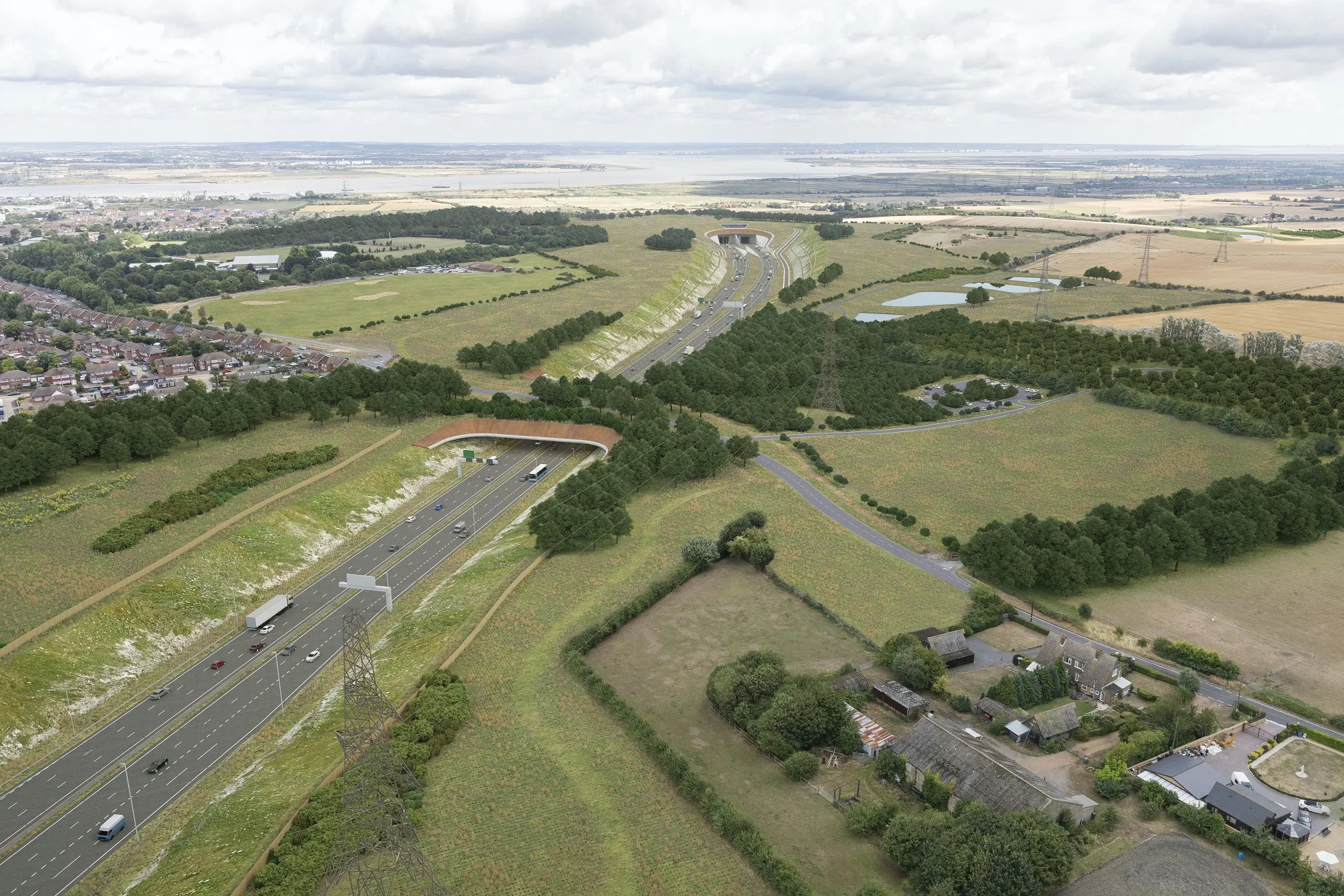
Highways England’s planned £2 billion Lower Thames Crossing will have a free-flow charging system, similar to that of the nearby Dartford Crossing.
Highways England has just tendered for what will be the government-owned agency’s largest-ever contract that will include Britain’s longest road tunnel, a 4.2km-long twin tunnel under the River Thames, east of London.
There will also be traffic regulation measures that include prohibiting use by pedestrians, low-powered motorcycles, cyclists, horse riders and agricultural vehicles.
The existing Dartford Crossing, which was designed for 135,000 vehicles a day, often sees 180,000 a day. It also can take three to five hours for the roads to clear following a closure.
In its first year, more than 27 million drivers are forecast to use the Lower Thames Crossing, providing much-needed relief at Dartford.
The Crossing will improve journeys by almost doubling road capacity across the Thames River, thanks to 23km of new road of three lanes in both directions.
Work could start in early 2022, according to Highways England, which is responsible for modernising, maintaining and operating England’s motorways and major A roads.
At 16m wide, the tunnels - one for southbound traffic, the other for northbound traffic - will be some of the largest bored tunnels in the world, says the agency. The scope also includes portal buildings, approach roads and the tunnel systems.
The agency said that it expects that three applicants will be shortlisted to move forward into a competitive dialogue stage.
The tunnels and approaches contract is the first of the three main works contacts for the scheme. Following this deal will be the Roads North and the A2/M2 contracts which are expected to be announced early next year.
“The Lower Thames Crossing is the most ambitious road project this country has seen since the M25 was completed nearly 35 years ago,” said Matt Palmer, executive director of Lower Thames Crossing.
“The scheme will relieve congestion at the Dartford Crossing by providing a new free-flowing road, almost doubling road capacity across the Thames and supporting sustainable local and regional economic growth.”
Keith Bowers, tunnels and systems director for the Lower Thames Crossing, added: “We have committed to targets that mean by 2040 nobody will be killed or seriously injured on our roads and motorways and we need our contractors’ design and delivery to meet that target for our road users and workers.”








